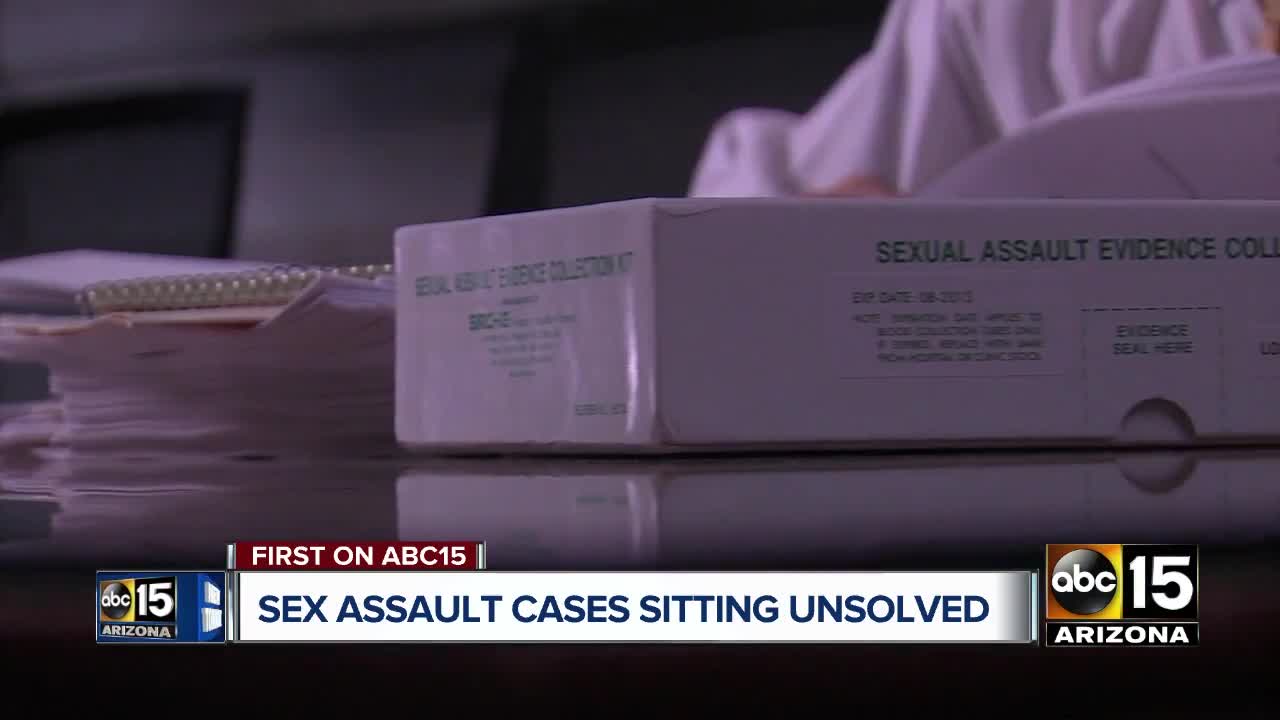The arrest of an accused serial rapistis raising questions on other unsolved sexual assault cases.
Phoenix police tell ABC15 1,500 sexual assault cases are still open and considered "pended," meaning police are still in need of new evidence to make an arrest.
ABC15 discovered 35-year-old Isaias Jimenez-Perez is accused of raping at least seven Valley women since October of last year. Before his arrest last month, each of those cases were also marked as "pended."
Only after one of the latest victims provided police with a specific description of the car Jimenez-Perez was accused of driving, were detectives able to find and arrest their suspect for driving with a suspended license.
Shortly afterward, his description gave police the probable cause they needed to take a sample of his DNA, which matched at least two of the seven cases, while other victims then identified Jimenez-Perez as their attacker after seeing his photo in a line-up.
The issue surrounds finding a suspect. Without details on what the attacker looks like or any personal information, police may have trouble identifying the person responsible.
“If a person has been sexually assaulted and they have no idea who their attacker is, the only strong way to find this person is with DNA evidence," said attorney Benjamin Taylor.
After a sexual assault, most victims undergo a forensic examination, and evidence from that is placed into a "rape kit." That's where investigators look to see if the suspect left any of their DNA on the victim. However, even if there is DNA evidence, law enforcement still relies on a DNA database to compare DNA samples to.
"It’s a big challenge for them to prosecute and find their assailant," Taylor said. "If you haven’t been arrested before, and your DNA is not in the DNA database...it’s gonna be hard for a prosecutor or police officer to arrest a person if their information is not in the DNA database.”
The database only consists of DNA collected from people with past arrests or convictions. So, if an assailant isn't in the system, the case won't yield a DNA result.
“It’s extremely frustrating for victims," Taylor said. "I mean, victims have every right to see justice sought in the criminal justice system.”
Phoenix Police Sgt. Armando Carbajal says that's why suspect descriptions are so important.
“(What) you may think is insignificant, could be a big break in our case," he said.
Anything from facial features, hair color, or even voice could help detectives narrow down a suspect.
“Did the suspect say anything, what language do they speak did they have an accent?" he added.
Police say that's what eventually led detectives to Jimenez-Perez. He's now facing 19 charges for multiple assaults.



